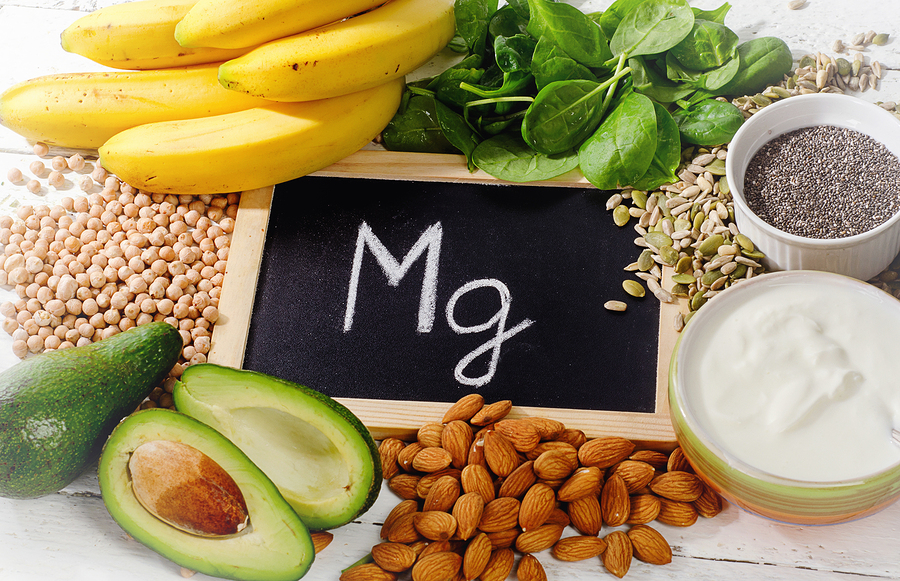Today I’d like to focus on the health benefits of magnesium. Over the last couple of weeks I’ve been writing a series of video scripts on how to address a Leaky Gut.
Once I produce this video series I’ll be sure to share it with you.
There are 5 key steps to healing a Leaky Gut and step five centers on the health benefits of magnesium.
Most of the literature about magnesium ignores this benefit.
So let’s start our discussion on the health benefits of magnesium by addressing how it can improve your gut health.
Magnesium For Improved Gut Health!
Magnesium is a crucial mineral required for the function of hundreds of enzymes in the gut to improve immunity, digestion, regularity, and energy production.
As your gut microbiome improves, magnesium aids in the production of healthy chemical compounds that can provide the following overall health benefits:
- Helps Increase Energy
- Calms Nerves
- Treats Insomnia
- Aids Digestion
- Relieves Muscle Aches and Pains
- Regulates Calcium and Potassium Levels
- Is Important for Heart Health
- Prevents Migraine Headaches
-
And
Helps Prevent
Osteoporosis.
One of the keys to improving your gut health and reducing the potential for a Leaky Gut is to reduce inflammation. Magnesium helps in a big way.
As your body uses magnesium to help you properly digest your food, this reduces the potential for toxins. Toxins create inflammation, which damages the lining of your small intestine.
Less toxins produced, less damage to the lining of your small intestine to decrease your probability of having a Leaky Gut.
Other Health Benefits of Magnesium
In addition to having a significant impact on maintaining good gut health, magnesium has three overall health benefits:
- Benefit 1 – Needed for Cellular Energy
- Benefit 2 – Necessary for DNA Synthesis and Repair
-
Benefit
3 –
Combats Chronic, Low-Grade Inflammation
When you break these overall health benefits down, they play the following role in helping your body and organ systems function better. For example:
Bone Density – Half of your total body magnesium is stored in the bones. It’s needed for bone remodeling. This is a process that your body uses to break down old bone structure to reform new bone structure.
And your blood levels of magnesium are critical to your bone density. If deficient, then your body will take magnesium from your bones, which can decrease your bone mass to contribute to osteoporosis.
This also triggers pro-inflammatory cytokines to increase inflammation.
Cardiovascular Health – Magnesium has several roles in heart health. One is helping to maintain good heart rhythm. If your magnesium levels are low, then your become more susceptible to irregular heartbeats or what the medical community calls arrhythmias.
Magnesium also improves the function of your endothelium, which lines all of your cardiovascular system. This improvement helps to dilate the blood vessels for improved blood flow. And can aid in keeping your blood pressure under control.
Metabolic Syndrome – This is a group of health risks like abdominal obesity, high blood sugar, high blood pressure, and cholesterol concerns. When taken together, these health risks increase your potential for developing cardiovascular diseases like heart attacks and strokes.
Research studies have shown that magnesium can reduce the incidence of metabolic syndrome. Specifically, higher magnesium intake was associated with lower stroke risk. One study showed that for men who had the highest magnesium intake, they reduced their risk for stoke by 41%. This also applied to having lower rates of heart failure.
Health Benefits of Magnesium – Nutritional Supplements
While you can try to get your magnesium from the food you eat, the best way is to use a good nutritional supplement.
Make sure the magnesium supplement you choose is in either the citrate or chelate form.
Magnesium Chelate is highly absorb-able by your body. It’s the form naturally found in foods. Because it’s bound to several types of amino acids, this aids in restoring your magnesium levels.
Magnesium Citrate combines the magnesium with citric acid. For some this might have a laxative effect.
Now the dosage amounts vary with age and sex:
Age 14 – 18: 410 milligrams for men and 360 milligrams for women
Age 19 – 30: 400 milligrams for men and 310 milligrams for women
Age 31 and older: 420 milligrams for men and 320 milligrams for women
As you can see not a lot of difference based on age so make sure you’re taking at least 400 milligrams per day for men and at least 300 milligrams per day for women.
Since the majority of Americans do not get adequate amounts of magnesium in their diet, it would be to their best health interest to increase their consumption of this key mineral. Here are the top 10 foods listed based on highest intake of magnesium:
| Food Source | Amount Need | Magnesium Intake |
| Leafy Greens like Kale or Spinach | 1 cup | 157 mg |
| Seeds like Flax, Pumpkin or Chia | 1 ounce | 150 mg |
| Legumes like Lentils, Beans, or Chickpeas | 1 cup | 120 mg |
| Nuts like Almonds or Cashews | 1 ounce | 82 mg |
| Whole Grains like Wheat, Oats, or Barley | 1 ounce | 65 mg |
| Dark Chocolate | 1 ounce | 64 mg |
| Avocados | Medium | 58 mg |
| Fatty Fish like Salmon or Mackerel | Half a fillet (178 grams) | 53 mg |
| Tofu | 3.5 ounces | 53 mg |
| Bananas | 1 large | 37 mg |
You
can decide which
method is best
to help you enjoy the health benefits of magnesium: food or
supplements.
Blessing Lives Through Nitric Oxide Therapy!
Dan Hammer

Leave a Reply
You must be logged in to post a comment.